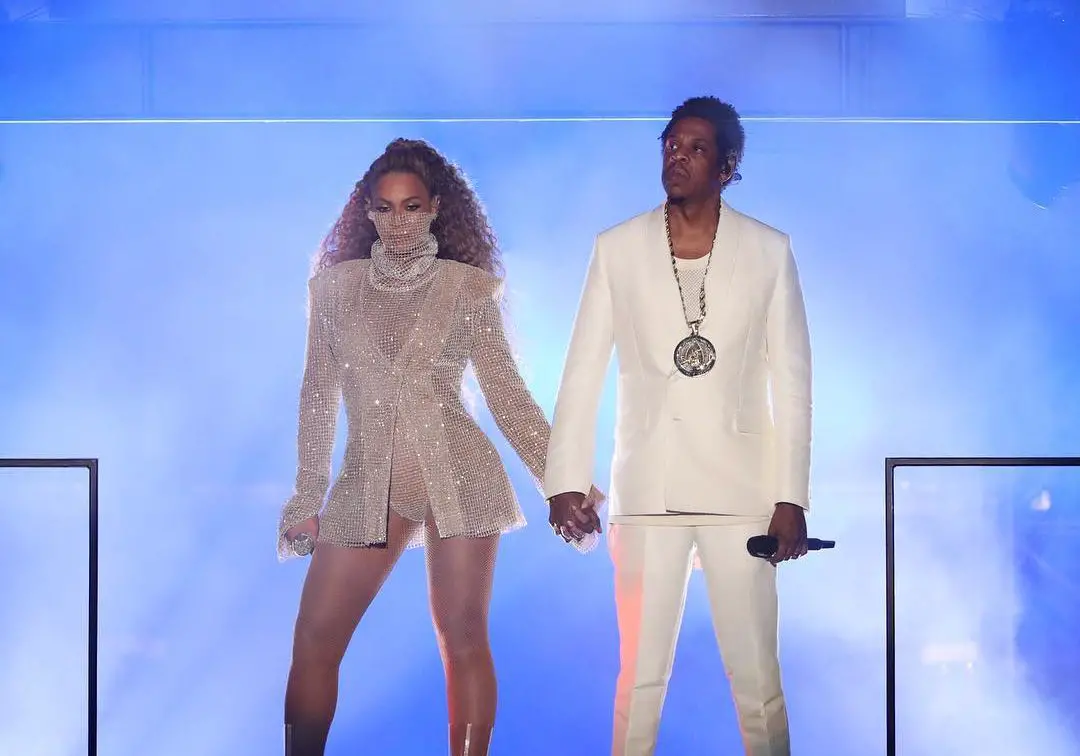Throughout the 2010s, there has been a noticeable evolution in hip-hop and R&B music. With a few exceptions, singers and songwriters are beginning to turn away from the usual themes of hip-hop (money, cars, women and sex). The transformation to making music dedicated to the African diaspora is an indication that the African American community is beginning to embrace their roots.
With four months left before entering the second decade of the 21st century, the music genre may dive deeper into the African American experience by highlighting black history. Multi-hyphenated singer and record producer Beyoncé Giselle Knowles-Carter is just one of a few trailblazers who has released records that exhibit black culture that originates from the African continent.
The album “Everything Is Love” is a collaborative album by the entertainer herself and her equally successful husband, rapper-turned-billionaire-mogul Jay-Z. The 2018 joint album expresses its authenticity by exemplifying the African diaspora.
Songs such as “Black Effect” and “Nice” explore the power couples’ liberation as they mention several historical black figures who have faced discrimination and oppression such as the Freedom Riders and Sarah Baartman. Jay-Z also succeeds in shedding light on more recent tragedies in American history by hinting at his production of the “Kalief Browder Story” as well as “Rest in Power: The Trayvon Martin Story.”
Mrs. Carter continues to represent the African diaspora on “The Gift.” Inspired by voicing Nala in the remake of “The Lion King,” the self-produced album features artists spanning across the African continent.
From Afropop to dancehall, “The Gift” features artists who are proud natives of Nigeria, Cameroon and Ghana. The multi-talented superstar remarked that this 27-song project is “a love letter to Africa.”
Knowles-Carter is not the only artist dedicated to highlighting the African diaspora. In early June, rapper GoldLink released the album “Diaspora,” an upbeat project comprising several African themes and musical styles. With Rastafarian beats, war cries and the use of West Indian dialect, the young entertainer succeeded in representing African music.
The sudden emerging of African culture is not a coincidence. The trend that navigates hip-hop artists to a more Afrocentric style is a result of the African American community wanting to become more culturally aware after witnessing the current tribulations of the decade.
In 2008, Americans made history by electing Barack Obama as its first black president. Many believed that having an African American as the commander in chief would mitigate the racial gap; arguably, Obama’s inauguration did the complete opposite.
With heightened racial tensions, discrimination became apparent when videos surfaced showing incidents of police brutality between white officers and African Americans.
In 2012, 16-year-old Trayvon Martin was shot and killed by former neighborhood watch coordinator George Zimmerman. Martin’s murder is believed to be another cause of racial animus between white law enforcement and African Americans. The death of Trayvon Martin sparked protests across the nation. Citizens became outraged after Zimmerman was found innocent of second-degree manslaughter.
Racial discrimination has always been a prevalent issue in America. However, during Obama’s second presidential term, Martin’s murder came as a shock to the public during a time when racial tensions were not perceived to be a serious issue. Martin’s story was one of many throughout the decade that share the story of black victims being unjustifiably killed by police.
In the summer of 2016, Philando Castile died after receiving seven gunshots from Officer Jeronimo Yanez. In July 2014, Eric Garner died on a Staten Island street corner due to a straining chokehold by NYPD officer Daniel Pantaleo. What is significant about Garner and Castile’s case is that the lead-up from the police encounter to the victim’s death was caught on video and shared for the world to see.
It is because of smartphones and the power of social media that the black community didn’t have to rely on news outlets to create a narrative. Witnessing such gruesome and horrifying acts of murder sparked the Black Lives Matter movement.
Black Lives Matter is an alert to the American public about how racism is the foundation for systemic oppression and racial bias. In the wake of the Obama Era, citizens began to grow more culturally aware.
Nearing the end of the decade, there has been an increase in the amount of cultural awareness in the African American community. The unfortunate deaths of innocent people was a wake-up call to the country. The cases of Tamir Rice, Michael Brown, Sandra Bland and Freddie Gray (just to name a few) motivated black Americans to gain control over their community.
African Americans believe that by being knowledgeable of their race and history, black Americans will know what is best for their people and will be able to protect their community.
After years of discrimination and racial bias, a wave of cultural awareness is reflected in today’s hip-hop music and beginning a trend; as the world is getting ready to head into the 2020s, African Americans are evolving into a unified group who understands the importance of education, self-origin and unity.
This explains why artists such as Beyoncé, Jay-Z and GoldLink are releasing music that alludes to their knowledge of African history. Not only do you see this evolution in music, but in films as well.
In the past few years, there has been a surge of black directors and producers in Hollywood. Jordan Peele’s “Get Out” was one of the most profitable movies of 2017. The film also earned him an Oscar for screenwriting. In 2018, Peele’s “Us” charted as the third biggest opening ever for an original horror movie, taking in $254 million globally.
Ava DuVernay’s documentary “13th” received an Academy Award nomination for the best documentary feature after its 2016 release. DuVernay has also gone on to direct the Academy Award-nominated movie “Selma,” although the film hit theaters earlier in the decade. More recently, DuVernay’s limited drama series “When They See Us” was the most-watched show on Netflix two weeks after its release in late May. The series currently holds 16 Emmy nominations, one of them for the category of outstanding limited drama series.
After making his debut in 2013 with “Fruitvale Station,” director Ryan Coogler is continuing to leave his mark on Hollywood. Throughout the decade, Coogler has gone on to direct major box office hits; the young director is credited for 2015’s “Creed,” one of the latest entries to the four-decade “Rocky” franchise.
Coogler also has his stake in Marvel, one of the biggest franchises in the cinematic universe. By May 2018, Coogler’s “Black Panther” had raked in $1.3 billion after filming on a budget of $200 million. The Marvel movie is currently the top-grossing superhero film.
After a long wait from 2008 “Medicine for Melancholy,” Barry Jenkins has followed up with his 2016’s “Moonlight.” “Moonlight” has grossed $65 million worldwide, with a $1.5 million budget. With IndieWire crowning Jenkins with the best movie of the decade, the talented screenwriter has managed to snag an Academy Award for best adapted screenplay. Jenkins has also gone on to direct the screenplay adapted from the famous James Baldwin novel “If Beale Street Could Talk.”
Today’s black directors are succeeding in building a legacy in entertainment. Even more inspiring is that a number of the aforementioned films represent the African diaspora along with a cast of brilliant black actors and actresses. The inclusivity of film is creating a trend for African Americans that inspire more people of color to challenge the norm in Hollywood.
For instance, screenwriter Lena Waithe is new to the film scene but did not hesitate to begin building her legacy. While closing a two-season partnership deal with Amazon for the new series “THEM,” the Emmy Award-winning writer is currently producing Showtime’s “The Chi” and BET’s “Boomerang.” Moreover, Waithe has spurred a social media frenzy with the trailer release of her new movie “Queen and Slim” (expected to hit theaters in November), joining the narrative legacy of “Bonnie & Clyde.”
The return of the African diaspora in entertainment and music is fueled by the “Yes We Can” Obama hopefuls as well as the anger that emanated from unconcealed racial tension. Oddly enough, the sudden outpour of black talent is no different from the golden age of the Roaring ’20s in which many African Americans proved their aptitude for literature, music, poetry and art.
Predictably, history will repeat itself as we countdown to the modern ’20s era. Hopefully, the pattern of African American artistic leaders will inspire more inclusion in fields outside of entertainment.
















